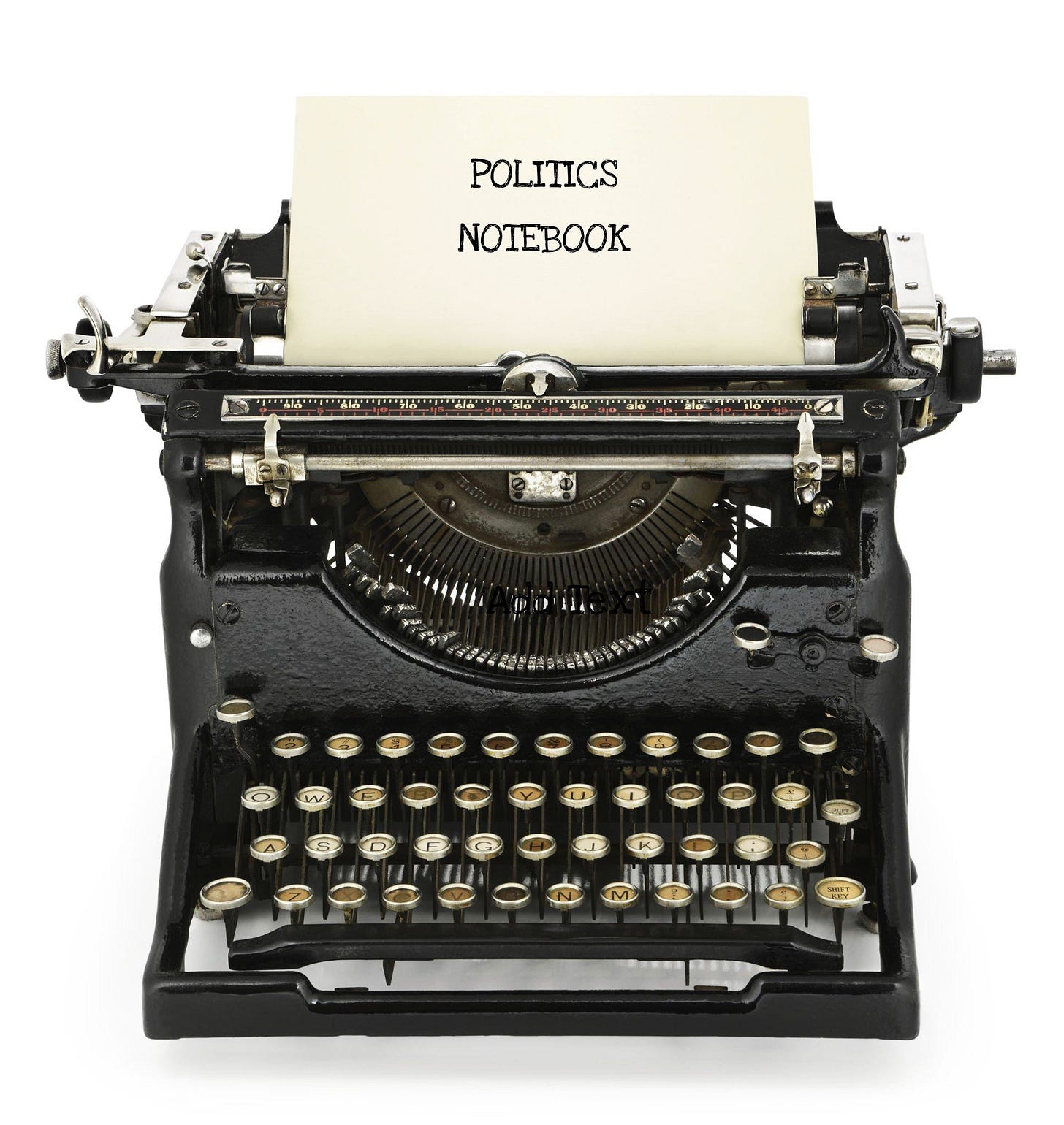Politics Notebook
Would the U.S. be better off today if Trump had won in 2020? What the heck is happening in NYC politics? And more.
Just a chance here to catch up on a few things happening in American politics these days, and contemplate some articles that caught my attention.
1. Would the U.S. be better off today if Trump had won in 2020?
It’s a thought-provoking question. Ed Kilgore makes the case in New York Magazine:
At first blush, the idea that things would be better had Trump been peacefully re-inaugurated on January 20, 2021, seems nuts. But we can all agree it would have been good if there had been no “stop the steal” rally, no gatherings of Christian-right extremists blowing shofars, no Capitol riot, no shattered windows, no dead or injured police officers, and no enduring right-wing myth of a rigged election. A Trump win would have also meant no second Trump impeachment, then no federal criminal prosecution of Trump for his involvement in an attempted insurrection. These developments, while momentarily satisfying to Democrats, did virtually nothing to limit Trump’s political support while doing a lot to intensify polarization.
Moreover, think of the burdens Trump would have inherited as a second-term president taking office in 2021. He would not have been able to hand off the final stages of the coronavirus epidemic, and all the unpopular and unpleasant measures it involved, most of which he had originally supported. He would have almost certainly become the “inflation president,” too. The supply-chain interruptions that boosted prices under Biden would have afflicted a different president just as surely…
A reelected Trump would not have had four years to plan a scorched-earth second term with audacious power grabs far beyond anything he tried from 2017 to ’21 … Most of all, a Trump reelection in 2020 would have made the 2024 election in whose shadow we stand a very different proposition.
2. What’s happening in New York City politics?
You’ve heard, no doubt: A Democratic Socialist, Zohran Mamdani, won NYC’s Democratic primary for mayor.
How did he win? There are two main theories. One, that he simply ran a better campaign and energized voters:
Mamdani won with social media buzz, Gen Z-friendly Pop Crave videos and so on — unlike Cuomo, who ran as a traditional Democrat and received a convoluted NYT nonendorsement.
Another theory, which is not mutually exclusive to the first one (they may both be true) is that he talked about what voters care about: The cost of living.
But for plenty of observers, this wasn’t about identity. Mamdani has promised free buses, free child care, city-run grocery stores, rent freezes, wealth taxes and more. And whatever you think of those kinds of pledges, there’s a running theme that plenty of Dems believe was the real lesson from last night: Mamdani won by focusing relentlessly on the cost of living — the issue poll after poll shows voters care about most. (It’s still the economy, stupid.)
Meanwhile, quite a few political and business leaders are coalescing to try defeating Mamdani in the general election. Except that the opposition is splintered and nobody wants to be the candidate to drop out of the race in order to allow someone else to go one-on-one with Mamdani. Which led one writer to suggest that the “Never Zohran” movement is looking a lot like “Never Trump” from 2016.
An insurgent outsider surges to the front of the pack to defeat, among others, the scion of a political dynasty. In doing so, he takes positions considered unthinkable to many in the party’s traditional voting base. He is considered so anathema that many in his own party vow never to support him, organizing desperate bid after desperate bid to organize a viable third party challenge in November…
The anti-Zohran forces of today bear a lot of resemblance to the Never Trump movement of 2016, and without a decisive attempt to unify behind a single candidate, are likely to suffer the same fate.
But not all business leaders oppose Mamdani. A sizeable number of wealthy New Yorkers actually support him, a group that the Wall Street Journal dubbed the Mamdani Millionaires:
Voting data show a little less than a third of the city’s wealthiest supported Mamdani, and interviews with chief executives, traders, investors and corporate lawyers pulling for him show they are willing to trade a cut of their one-percenter earnings to fund his more-equitable vision of the Big Apple’s future. They believe years of widening income inequality have harmed the city’s ability to attract talent and think a stronger social-safety net is needed to reverse the decline.
3. And here’s a twist: American migrants may not be welcome in Mexico.
But not for the reason you might expect.
While the Trump administration tries to round up immigrants and deport them, protests against foreigners are also breaking out in Mexico. In this case, though, it’s against more well-off remote workers who are driving up the cost of living for locals:
In handwritten signs and graffiti, the protesters made their anger at the influx of foreigners who have recently settled in Mexico City clear:
“Gringo, go home!” “Speak Spanish or Die!” “Gentrification is colonization!” …
Tempers are flaring in Mexico City, North America’s largest metropolis, around the arrival of thousands of relatively well-off foreigners, especially from the United States. Many longtime residents are fuming over rising rents and food prices in parts of the city.




